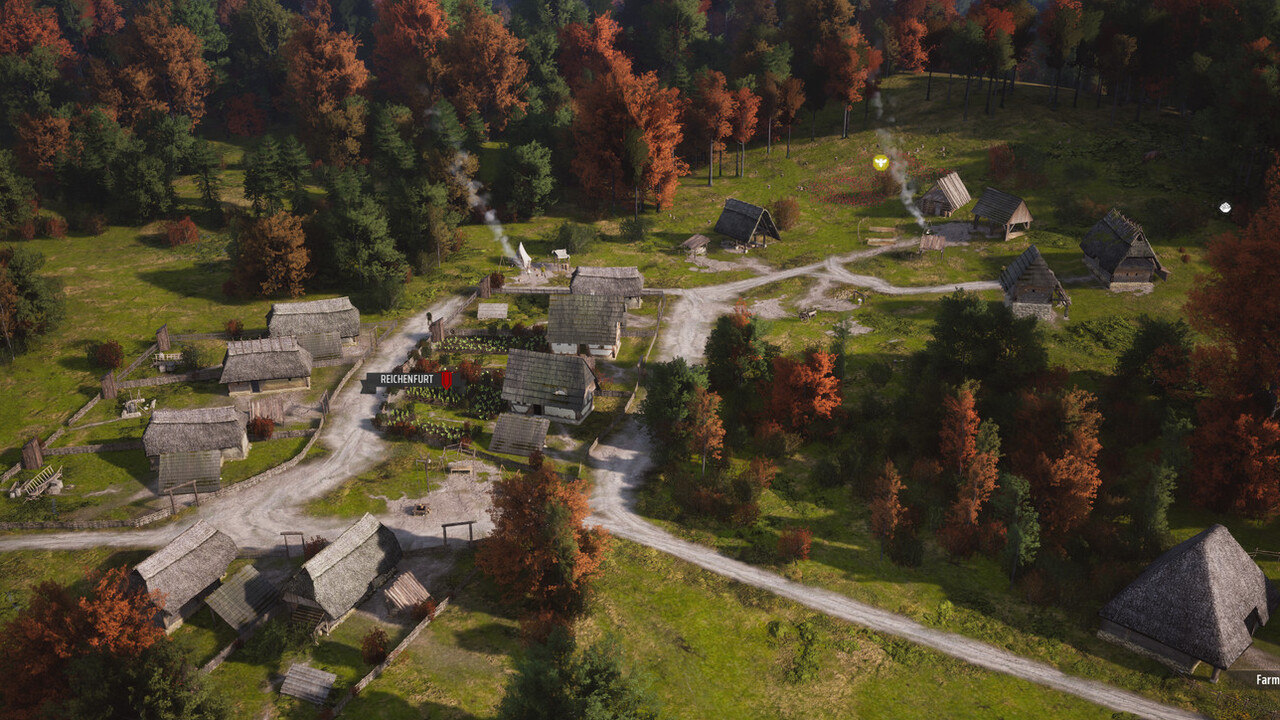Israel elects a new parliament – for the fifth time in four years. Nearly two-thirds of the votes were counted on Wednesday. News Ticker.
- Election of the Knesset: Israel A new parliament is elected for the fifth time in four years
- face to face: According to forecasts, former Prime Minister Benjamin Netanyahu has the advantage
- high demand: The figures for the elections in Israel indicate a high turnout.
+++ 06.50 AM: After the parliamentary elections in Israel, nearly two-thirds of the votes cast had been counted by Wednesday morning. According to Israeli media reports, smaller parties from the camp of liberal Prime Minister Jair Lapid may fail at the 3.25% barrier. This applies to the liberal left-wing Meretz party and the conservative Islamist Raam party. Al-Balad al-Arabi could also narrowly miss the entry into parliament.
According to forecasts, the leader of the right-wing opposition, Benjamin Netanyahu, has a good chance of returning as prime minister. The right-wing religious camp around the 73-year-old achieved a slim majority of 62 of the 120 seats. His Likud party was stronger with about a quarter of the seats in parliament. Lapid’s party came in second place.
For the first time in Israel’s history, a far-right coalition ranked third. The Religious Zionist Party led by Bezalel Smotrich and Itamar Ben Gvir is seen as a potential kingmaker for Netanyahu.
Elections in Israel: Netanyahu before the return – the right-wing religious camp in the fore
Update November 2 4:30 am: Right-wing conservative opposition leader Benjamin Netanyahu has a good chance of returning as prime minister after the parliamentary elections in Israel. The right-wing religious camp around the 73-year-old pulled in a slim majority of 61-62 out of 120 seats, according to TV forecasts based on post-election polls on Wednesday night (November 2).
His conservative right-wing party, Likud, was the strongest with 31 to 32 seats. It is directly behind the Future Party, led by Prime Minister Jair Lapid, with 23 seats. However, past elections have shown that the picture can change before all votes are counted. The end result is not expected before Thursday.
Elections in Israel: Netanyahu talks about a ‘good start’
+++ 10.50 pm: Israeli right-wing opposition leader Benjamin Netanyahu described his success in the parliamentary elections as a “good start”. However, the final result of the elections will not be known until all the votes are counted, the Likud leader said Tuesday night at a meeting with his supporters. The 73-year-old warned it “must be the real number and not the false count”.
The Likud supporters had earlier launched allegations of attempts to rig the vote in the Arab sector. On the other hand, the Central Elections Committee declared that “no unusual incidents were known in the Arab sector.”
According to TV forecasts, the Arab League is just below the 3.25 percent barrier. If she manages to get into parliament, it could put Netanyahu’s majority at risk.
Elections in Israel: Netanyahu’s Likud party advances according to expectations
+++ 9.05 pmAccording to expectations, the conservative right-wing Likud party led by opposition leader Benjamin Netanyahu has become the strongest force in the parliamentary elections in Israel. It won 30 to 31 out of 120 seats, according to television projections based on Tuesday’s post-election polls. The Future Party led by Prime Minister Jair Lapid came in second place with 22 to 24 seats. The right-wing religious camp surrounding Netanyahu achieved a narrow majority of 61 to 62 seats in the fifth election in three and a half years. According to the Central Elections Committee, the turnout of 6.8 million eligible voters as of 7:00 p.m. (CET) was 66.3 percent – the highest since 1999.

Forecasts put Bezalel Smotrich and Itamar Ben Gvir, the religious Zionist party, in third place, with 14 to 15 seats. The right-wing alliance is a potential kingmaker. The Election Commission did not expect the final preliminary results until Thursday. Previous elections showed that the picture could change before all votes were counted.
When the final official outcome is known, President Isaac Herzog decides who will be tasked with forming the government. The candidate then has four weeks to form a coalition. However, like last year’s election, it could take weeks or months to form a government. Netanyahu was initially given the task of forming a government, but was unable to form a coalition.
+++ 4.45 pm: The fifth parliamentary elections in Israel in just three and a half years will once again be a nail-biter. The two main political rivals – Prime Minister Jair Lapid and opposition leader Benjamin Netanyahu – are still vying for every election day vote. On Tuesday, the turnout was the highest in decades: it was still unclear in the afternoon which political camp the majority of voters would use. According to the Central Elections Committee, turnout as of 3:00 p.m. (CET) was 47.5 percent – the highest since 1999.
Israeli elections: a possible victory for Netanyahu raises fears
+++ 3.30 pm: In liberal circles in Israel, there is a fear of elections. If the ultra-Orthodox bloc around Benjamin Netanyahu wins, many Israeli newspapers fear that the country will drift into authoritarianism. in hair network He has publicly written about fears of an “authoritarian state” that Netanyahu and his allies Itamar Ben Gvir and Bezalel Smotrich hope to turn Israel into if they win the elections. as well Times of Israel He warns against drifting to extremism if the right-wing forces win the Israeli elections.
+++ 1.50 pm: The highest voter turnout since 1999 was recorded in the Israeli parliamentary elections. According to the Central Election Commission, the proportion was 28.4 percent on Tuesday afternoon. This is three percentage points more than the same time in the last elections in March of last year. However, this does not apply to the Arab community. According to the Front Party, turnout in the Arab community was only 12% as of midday.
Elections in Israel: Netanyahu fears a high turnout
Update from Tuesday, November 1, 12:00 p.m.: Israeli Prime Minister and current opposition leader Benjamin Netanyahu has expressed “somewhat concerned” about the outcome of Tuesday’s parliamentary elections. When voting in Jerusalem, the leader of the conservative right-wing Likud party noted that voter turnout in strongholds of political competition has been higher thus far. He still hopes to “end the day with a smile.” Netanyahu appealed to his supporters to go to the polls immediately.
Elections in Israel: Is Netanyahu Back? Shift to the right in the Knesset feared
First report on Tuesday, November 1 at 8:45 a.m.: JERUSALEM – Today, Tuesday (1 November), the fifth Israeli general elections in four years will begin. Polls will remain open until 9 p.m. to vote on the 120 seats in the Knesset, where former Prime Minister Benjamin Netanyahu hopes to return to power. According to recent opinion polls His conservative nationalist party, Likud, is leading, but is likely to count on the support of far-right parties.
Netanyahu can count on the support of his former coalition partners, the ultra-Orthodox and Far-right Itamar bin Juffair alliance Bezalel Smotrich. The latter coalition in particular, which advocates the annexation of the entire Israeli-occupied West Bank, has been able to gain ground in the opinion polls and become the third most powerful force.
Elections in Israel: Netanyahu may rely on ultra-nationalists
Ben Juffair cast his vote in a Jewish settlement near Hebron in the occupied West Bank. “Those who elect us will get Netanyahu as prime minister and a real right-wing government,” he called for the vote immediately.
Incumbent Prime Minister Yair Lapid, whose centrist Yesh Atid party has trailed Netanyahu’s Likud in opinion polls, cast his vote in Tel Aviv on Tuesday morning. He called for a large turnout of voters. “Go and vote today for the future of our children, for the future of our country. Choose well,” he said.
| What was chosen? | 25. The Israeli Knesset |
| Who was elected? | 120 members of parliament |
| Parliamentary blocs in Israel (current) | 13 |
| Parties in the Parliament of Israel (current) | 21 |
Elections in Israel: High turnout expected
Lapid ended Netanyahu’s rule last year with an eight-party alliance. The alliance, which included an Arab-led party for the first time in the country’s history, disintegrated in June after a year in office.
Voter Shai Barkan, 66, expressed his frustration with the ongoing new elections when he cast his ballot in Tel Aviv. “I am doing my civic duty and I hope that these elections will be the last in the next four years,” he told AFP.
Although it is the fifth general election Within four years, experts expect a relatively high voter turnout. Electoral parties and coalitions must pass a 3.25% obstacle to enter the Knesset.
Participation of Arab Israeli voters is critical to the outcome of elections in Israel
In addition to the security situation, the main issues in the election campaign were the high cost of living in Israel. For Netanyahu, the elections are also important on a personal level given the corruption allegations against him. If the 73-year-old becomes prime minister, he can apply for immunity.
Opinion polls reveal a very contradictory race. Accordingly, the camp surrounding Netanyahu can hope for 60 seats, the anti-Netanyahu bloc on 56, and the coalition of Arab parties on four. However, none of the various camps will achieve the necessary absolute majority in the Israeli parliament. The deciding factor may be the participation of Israeli Arabs, who make up about 20 percent of the population in Israel. (ktho / nak / AFP / dpa)

“Tv expert. Hardcore creator. Extreme music fan. Lifelong twitter geek. Certified travel enthusiast. Baconaholic. Pop culture nerd. Reader. Freelance student.”







More Stories
Immunotherapy as conversion therapy
How did life begin on Earth? Munich researchers find important clues
Principles and features of the folk nutritional principle